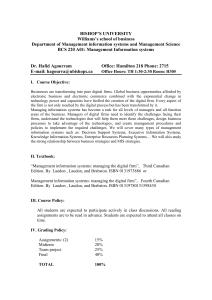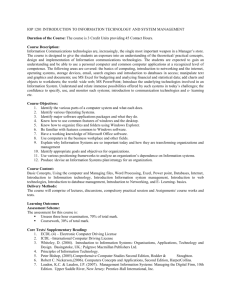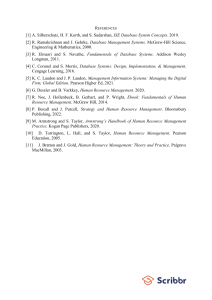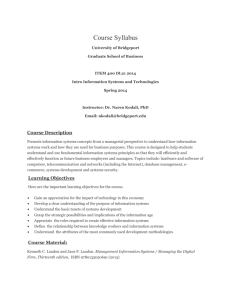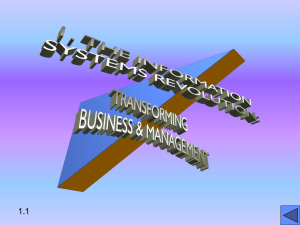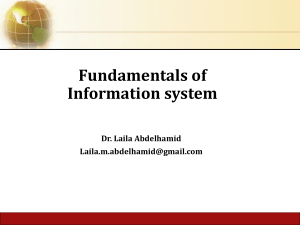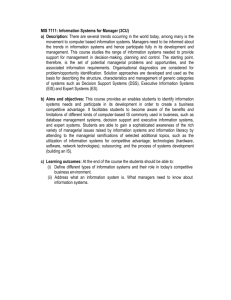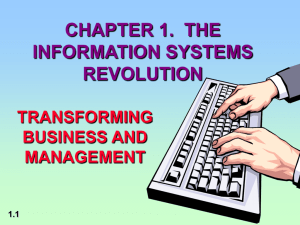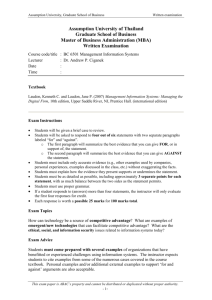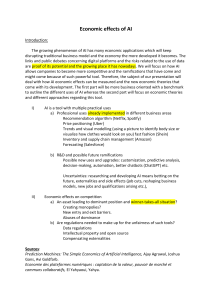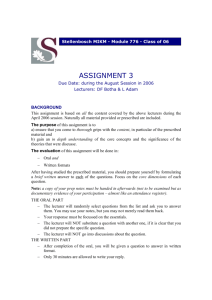2. THE STRATEGIC ROLE OF INFORMATION SYSTEMS
advertisement
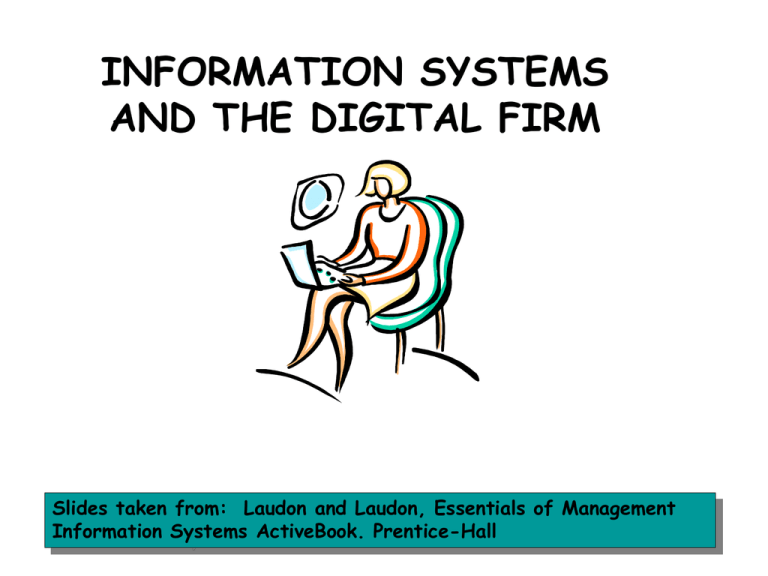
INFORMATION SYSTEMS AND THE DIGITAL FIRM Slides taken from: Laudon and Laudon, Essentials of Management Information Systems ActiveBook. Prentice-Hall What Is an Information System? Data and Information Functions of an Information System The Widening Scope of Information Systems New Options for Organizational Design Flattening organizations Separating work from location Reorganizing work-flows Increasing flexibility Redefining organizational boundaries What are information system implications? TOWARD THE DIGITAL FIRM Types of Information Systems MAJOR TYPES OF SYSTEMS Transaction Processing Systems (TPS) Office Automation Systems (OAS) Knowledge Work Stations (KWS) Management Information Systems (MIS) Decision Support Systems (DSS) Executive Support Systems (ESS) STRATEGIC ROLE OF INFORMATION SYSTEMS: TWO VIEWS Strategic info system can change the environment to gain competitive advantage Information technology is becoming a commodity -- Advances are easily replicated Nicholas Carr states many firms overspend on information systems and the systems themselves are becoming utilities like electricity or the railroads. Agree?? INFORMATION TECHNOLOGY AND TELECOMMUNICATIONS Change firm structure Network rather than hierarchical Restructure existing industries Create new industries Examples Financial services: Information accessibility Manufacturing: Increased flexibility Retailing: Quick response Questions -How have information technology and information systems changed the nature of human resources? Hiring Retaining Administering Managing Planning Questions Why are information systems essential in business today? What trends in the global business environment have made information systems so important. For your companies, what is the relationship between the organization and its information system? How has this changed over the past ten years? How do you foresee it changing in the future? How has the web changed your company’s information systems applications? How have the information systems where you work affected management processes? What are some examples? Will faster and cheaper computers eliminate information system problems? What problems will disappear and what new problems will arise? Questions Information systems raise the bar on customer expectations. How can organizations stay competitive yet hold IT investments in check? In the long run, is IT more of a hindrance than help? What is customer relationship management? Why is it important to a business? How do information systems facilitate customer relationship management? What are enterprise systems? How do they change the way an organization works? Information partnership occurs when two or more firms share data for mutual advantage. What are some examples of the benefits of partnering between a company and its suppliers? Its customers? Its competitors? Can information systems still yield strategic advantage for a firm? Or are information systems now a commodity that anyone can quickly duplicate?
